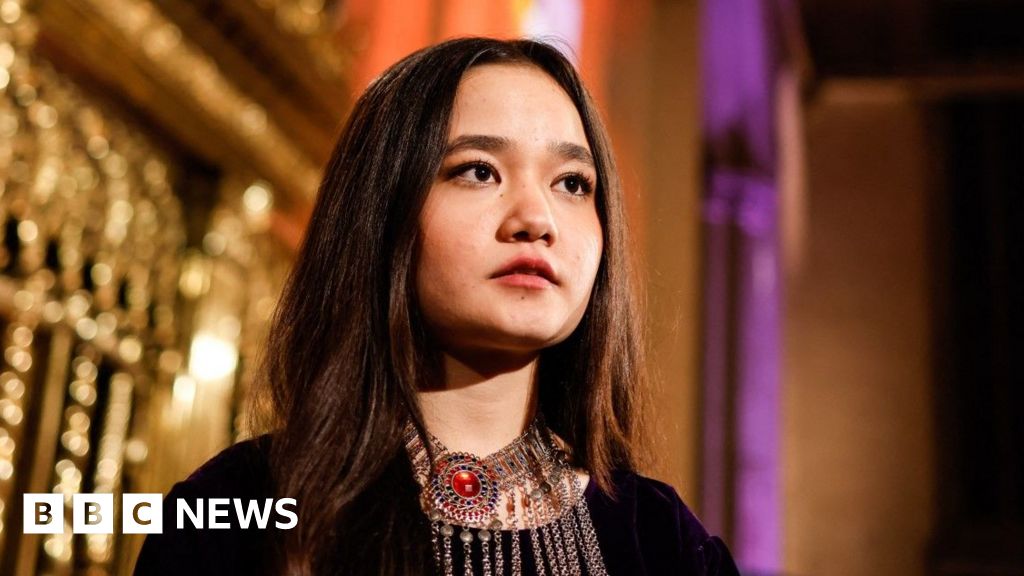World
Donald Trump: What it could mean for India-US relations | World News – Times of India

As the world’s largest economy and strongest military power, the United States, approaches its presidential election on November 5, the stakes are high for many countries, including world’s largest democracy, India.
The US presidential polls could have substantial consequences for global stability and growth, especially given the distinct policy differences between Democratic candidate Kamala Harris and Republican candidate Donald Trump. The global economy, including India’s own economic landscape, may experience major shifts based on the outcome of this pivotal vote.
‘The biggest election year in history’: Why the US vote matters
The United Nations has dubbed 2024 “the biggest election year in human history.” With nearly half the world’s population eligible to vote, including people across 72 countries, the significance of certain elections overshadows others. Among them, the US election stands out as one of the most consequential. As the US heads to the polls, the world watches with bated breath, aware that American leadership has far-reaching implications across continents.
Trump’s second term? What it could mean for India
If former president and Republican nominee Donald Trump wins his second term, India’s future relationship with the United States can possibly take a new direction. Trump, who has shown a keen interest in enhancing ties with India, has made public commitments to strengthening what he calls the “great partnership” between the two nations. In a recent post on X, timed just ahead of the US election, Trump reaffirmed his friendship with Prime Minister Narendra Modi, celebrating their close diplomatic relationship.
A message to the Indian diaspora and a stance on Bangladesh
In his strategic outreach to the Indian diaspora, Trump condemned the recent violence against Hindus and other minorities in Bangladesh, where reports indicate significant attacks on the Hindu community.
This statement comes amid complex South Asian geopolitics, with former Bangladeshi Prime Minister Sheikh Hasina reportedly seeking refuge in India following her ouster. Trump’s message underscores his intent to uphold security and respect for minorities in South Asia, signaling potential shifts in US foreign policy under his administration.
“Kamala and Joe have ignored Hindus across the world and in America. They have been a disaster from Israel to Ukraine to our own southern border, but we will make America strong again and bring back peace through strength!” former US president said in a Diwali message on X.
Hindu American groups also have applauded Trump for promising to protect the human rights of Hindus across the world, including the US and Bangladesh and protect them from the “anti-religion agenda of the radical left.”
A Modi-Trump bond with nationalist synergies
The friendship between Trump and Modi is not new. Their camaraderie was vividly displayed at the 2019 “Howdy, Modi!” event in Texas, where Trump hosted Modi in front of a crowd of 50,000, one of the largest US gatherings for a foreign leader. In early 2020, Trump reciprocated with a visit to India for the “Namaste Trump” event in Ahmedabad, attended by over 100,000 people at the world’s largest cricket stadium. These high-profile events reflect a mutual admiration, with Trump praising PM Modi’s leadership and India’s economic progress.
‘India first and ‘America first’: A shared vision?
PM Modi’s “India first” vision aligns with Trump’s “America First” platform, with both leaders emphasising domestic growth, economic nationalism, and secure borders. Their similar ideologies have fostered an alignment of US-India interests, which could deepen further should Trump win the election. Trump’s emphasis on strategic partnerships may lead to closer economic and defense collaboration with India, impacting areas from trade to military cooperation.
Trade and economic impact: Prospects for India’s key sectors
A Trump administration would likely pursue US-centric trade policies, pushing India to reduce trade barriers or face tariffs. This could impact key Indian sectors like IT, pharmaceuticals, and textiles, which have considerable US market exports. Trump has been vocal about his concerns over India’s tariffs, calling the country an “abuser” on the matter while recognizing Modi as a “fantastic man.” By pushing for balanced trade, Trump’s approach may challenge India to recalibrate its trade strategies, though it also opens doors for potential opportunities.
Decoupling from China: An opportunity for India?
Trump’s opposition to China, particularly regarding trade and security, may benefit India. His administration’s push to reduce reliance on Chinese manufacturing could encourage US companies to diversify their supply chains. With favorable policies, India could attract these companies, positioning itself as an alternative production hub and potentially accelerating economic growth.
Strengthening defence cooperation
Trump’s previous administration reinforced the Quad—a security partnership between the US, India, Japan, and Australia—to counter China’s growing influence in the Indo-Pacific region. Under Trump’s leadership, a second term would likely see a continuation of joint military exercises, arms sales, and technology transfers. Such defence collaboration would bolster India’s military capabilities, especially given its tensions with neighboring countries like China and Pakistan.
Immigration policies and the H-1B impact on Indian talent
Trump’s restrictive immigration policies, particularly concerning the H-1B visa program, have affected many Indian professionals in the US. If re-elected, Trump may revive these policies, creating obstacles for skilled Indian workers and potentially impacting sectors dependent on Indian talent, especially technology. Stricter immigration policies could prompt Indian tech firms to explore alternative markets or invest more domestically, creating new dynamics in the global talent landscape.
South Asia strategy: Balancing relations with Pakistan and counter-terrorism
Trump’s South Asia policies may impact India’s regional interests. Though he has shown a willingness to cooperate with Pakistan, Trump has also demanded accountability in counter-terrorism. His “Peace through strength” approach could signal a tougher US stance on terrorism and extremism, aligning with India’s own security concerns. A Trump-led US may exert more pressure on Pakistan to curb militant activities, potentially benefiting India’s security objectives.
Also See:
US Presidential Election | Trump Vs Kamala Harris | Donald Trump | Kamala Harris










